Stopping drugs: How Singapore screens travellers arriving at Changi Airport
A "traveller" who is suspected of committing drug offences is led away by CNB officers. (Photo: CNA/Marcus Mark Ramos)
SINGAPORE: Two years after COVID-19 halted travel and turned Changi Airport into a ghost town, the air hub has come alive again.
Crowds of travellers form queues at check-in counters. Families wave off loved ones at boarding gates. Suitcases roll by on baggage belts.
But even as the buzz returns to Changi, another challenge has come up for Singapore's security agencies – the legalisation of cannabis in other countries, most notably nearby Thailand, which started allowing the use of the drug in June.
With more than 16.5 million passengers having passed through Changi Airport this year, how is Singapore keeping drugs like cannabis at bay?
CNA got an inside look into the process, which starts at a restricted area on the tarmac where check-in baggage from flights are processed after they land.
This is where Bailey, a six-and-a-half-year-old English springer spaniel from the police K-9 unit, is stationed with his handler Sergeant Ryan Low.
Sergeant Ryan Low and his K-9 dog Bailey waits patiently for the next batch of luggage arriving in Singapore. (Photo: CNA/Marcus Mark Ramos)
As luggage is unloaded from carts onto a moving conveyor belt, Bailey walks on it, sniffing at the locked suitcases and expertly leaping over each one at SGT Low's command.
After several minutes of Bailey nosing through suitcases, the baggage from the flight we are observing, SQ278 from Adelaide, comes out clean.
But if a police dog does spot something suspicious, what happens? "Different dogs, different ways," said SGT Low.
Bailey, a six-and-a-half-year-old English springer spaniel from the police K-9 unit, sniffs every suitcase arriving in Singapore for narcotics. (Photo: CNA/Marcus Mark Ramos)
There are generally two ways a police dog will signal that something needs a closer look. In a "positive indication", the dog's nose will point towards the area of interest. In an "active indication", the dog will paw the area of interest.
When this happens, the suspicious suitcase and adjacent items are pulled down from the belt for the K-9 unit to verify the finding, said SGT Low.
CHECKS ON TRAVELLERS
Off the tarmac, enforcement efforts continue on the other side of the luggage belt, with random checks on travellers leaving the arrival hall.
In an enactment by Home Team officers, a mock traveller is called over for a check as she wheels her suitcase to the exit. Her luggage first passes through an X-ray scanner.
A mock traveller's belongings undergoing an IONSCAN. (Photo: CNA/Marcus Mark Ramos)
She then undergoes an IONSCAN, a high-tech swab that can detect trace amounts of narcotics or explosives. An Immigration and Checkpoints Authority (ICA) officer moves the handheld device over the traveller and her belongings.
This is what ends up giving her away. The IONSCAN emits a sound indicating the presence of drugs. The traveller is taken to the ICA baggage office, tucked into a corner of the arrival hall, for a more detailed screening.
The "traveller" is led away by CNB officers to the ICA baggage office. (Photo: CNA/Marcus Mark Ramos)
In the office, two Central Narcotics Bureau (CNB) officers perform a detailed search of her suitcase, laying it open on a metal table and examining each item. They leave nothing unturned as she stands by the side watching.
After that, a female CNB officer leads her into another room for a body search.
CNB officers conducting a detailed search on the traveller's suitcase. (Photo: CNA/Marcus Mark Ramos)
This turns up something suspicious – a small, plastic packet containing a brown substance, stuffed into an innocuous-looking pack of breath mints.
An officer puts a sample of the brown substance into a portable drug screening kit no bigger than the palm of his hand.
A portable drug screening kit used by CNB to test for controlled drugs. (Photo: CNA/Marcus Mark Ramos)
Such enhanced detection kits have been in use since March. They can detect a wider variety of controlled substances almost instantly – within five seconds. This is up to four times faster than before, said CNB.
The test indicator turns purple, indicating the presence of a controlled drug. This is enough to suspect that the "traveller" has committed drug offences, and to arrest her.
CNB officers cuff her on the spot, and she is led away to provide a sample for a urine test.
PREVENTION AND EDUCATION
Aside from detecting contraband, CNB officers also try to educate travellers about the consequences of entering Singapore with drugs.
At the departure hall, officers hand out flyers listing common drugs and their street names, the physical and psychological effects of taking drugs, and the maximum penalties for drug offences.
The flyers also contain an advisory that individuals who consume illegal drugs overseas can be arrested and face the same penalties as if they had committed the offence in Singapore.
That is up to 10 years in jail, a fine of up to S$20,000 or both for consuming a controlled drug.
This advisory about the extraterritoriality of Singapore's drug laws can also be found on a standee prominently located just before the restricted area of the departure hall.
A standee banner placed outside the departure hall to remind Singaporeans that consuming drugs overseas is illegal. (Photo: CNA/Marcus Mark Ramos)
The standee reminds travellers that they cannot import or sell products containing cannabis, cannabidiol (CBD) oil, hemp or hemp seed oil.
These can contain tetrahydrocannabinol (THC), the main psychoactive compound in cannabis that is a Class A controlled drug in Singapore.
These are all part of CNB's efforts to keep travellers informed as borders reopen and travel resumes after the COVID-19 pandemic, including to nearby Thailand.
TOURISTS VISITING THAILAND USE CANNABIS FOR RECREATION
Since Thailand legalised cannabis on Jun 9, the use and sale of products from the plant have expanded in parts of the country.
In Bangkok, a number of shops selling cannabis buds can be found around touristy areas such as Khaosan Road and Thonglor Road.
The legalisation was passed with the objective of promoting cannabis for medical and health purposes. However, there are signs that both Thais and foreigners are using it for recreation.
People smoke weed to celebrate the legalisation of cannabis at the Thailand: 420 Legalaew! weekend festival hosted by Highland in Nakhon Pathom province on Jun 11, 2022. (File photo: AFP/Lillian Suwanrumpha)
"Many tourists would just fly to Thailand for a week to smoke it and leave," said Nat Tangtanakul, owner of Choo-choo Hemp told CNA.
The business opened in June, one day after the law was passed. It has since welcomed both locals and international travellers. There are also clients who are suffering from pain after accidents.
"One of them had broken both of his legs and came to the shop from the hospital," he said.
According to Nat, there are about 30 to 40 customers per day. They tend to come in groups but sometimes, he also sees solo backpackers.
Some of them would stay for hours to try different types of cannabis, he said.
Plants are displayed as people gather to celebrate the legalisation of cannabis at the Thailand: 420 Legalaew! weekend festival hosted by Highland in Nakhon Pathom province on Jun 11, 2022. (File photo: AFP/Lillian Suwanrampha)
After the decriminalisation, it is now legal in Thailand to buy and sell cannabis plants, their parts such as buds and leaves and extracts.
However, the extracts must not contain more than 0.2 per cent by weight of THC.
"Importantly, it must be noted that smoking of cannabis in public is forbidden. The penalty for this is a potential three-month jail sentence and 25,000 baht (US$676) fine," said the Tourism Authority of Thailand on its website.
According to Thailand’s Food and Drug Administration, the sale of marijuana to pregnant women, breastfeeding mothers and people aged below the age of 20 is prohibited.
Earlier this month, Law and Home Affairs Minister K Shanmugam said that "the freer availability of cannabis in Thailand, to which a lot of Singaporeans go to and from, where a lot of tourists come to Singapore, is going to present more challenges".
He said that if there is clear evidence of the current use of drugs, Singapore authorities will take action, regardless of whether the consumption was in Singapore or overseas.
The minister also cited research showing that the use of cannabis is harmful and addictive, noting that it can cause irreversible brain damage, brain shrinkage, serious mental and psychiatric illnesses.
MORE ARRESTS AT CHANGI AIRPORT
With the resumption of overseas travel after the pandemic, there have been more arrests of suspected drug offenders at Singapore's borders.
As of August, CNB has arrested 41 Singaporeans and permanent residents for suspected drug abuse at the country's various checkpoints this year.
This is a significant increase from the six arrests made in the whole of 2021 and 30 arrests in the whole of 2020, when global travel restrictions were still largely in place.
But the figure is still far from the numbers seen in the three consecutive years before the pandemic, when the number of arrests consistently crossed the 120 mark.
CNB conducted more than 180 joint enforcement operations at Changi Airport from January to August, while more than 260 operations were carried out at other air, land and sea checkpoints.
More than 2,000 checks were conducted on travellers at Changi Airport during that period, against more than 17,000 checks at the other checkpoints.
This article was originally published on ChannelNewsAsia. Its inclusion on this website is solely for education purposes.
LET'S SHARE OUR THOUGHTS ON THE ARTICLE!
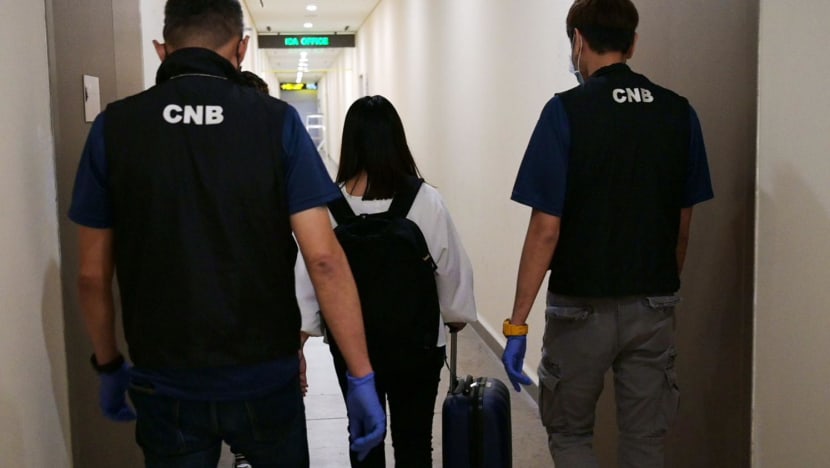
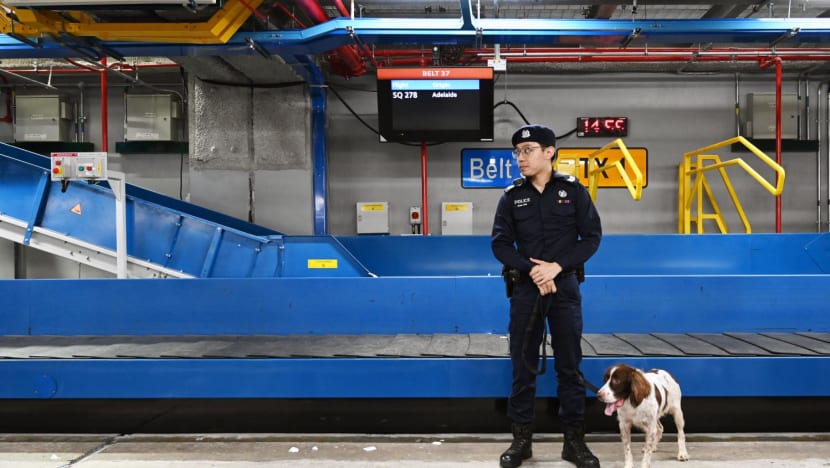
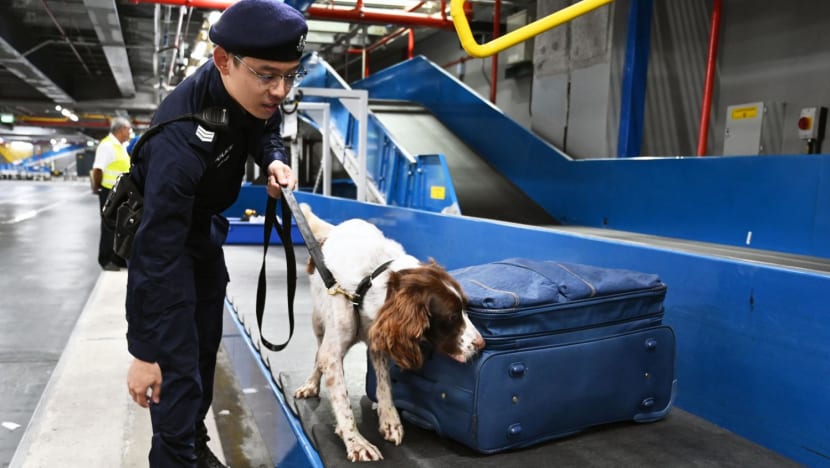
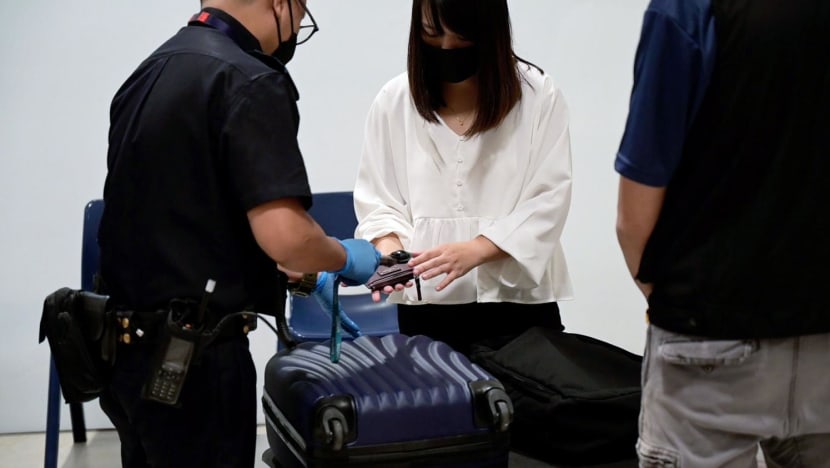
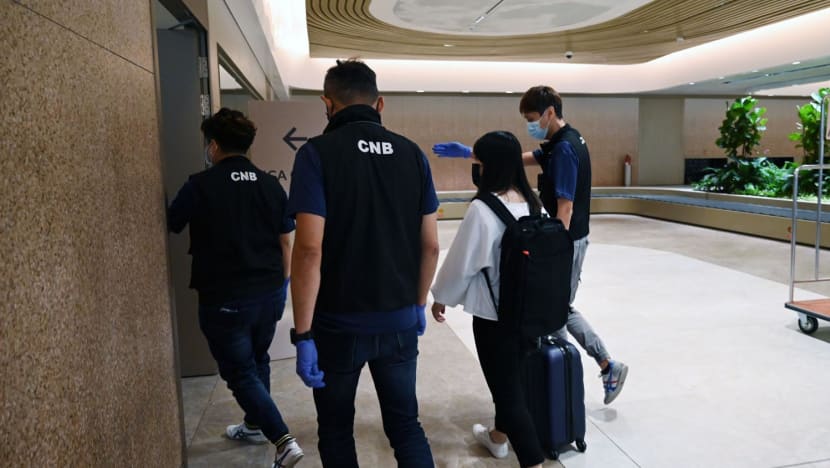
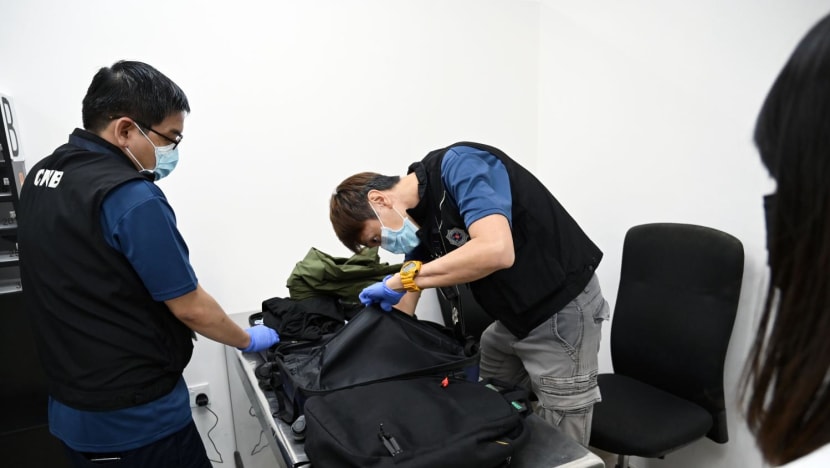
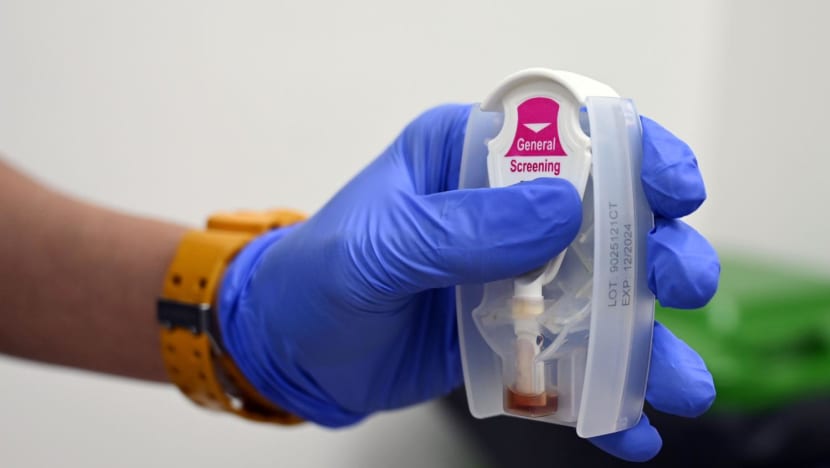
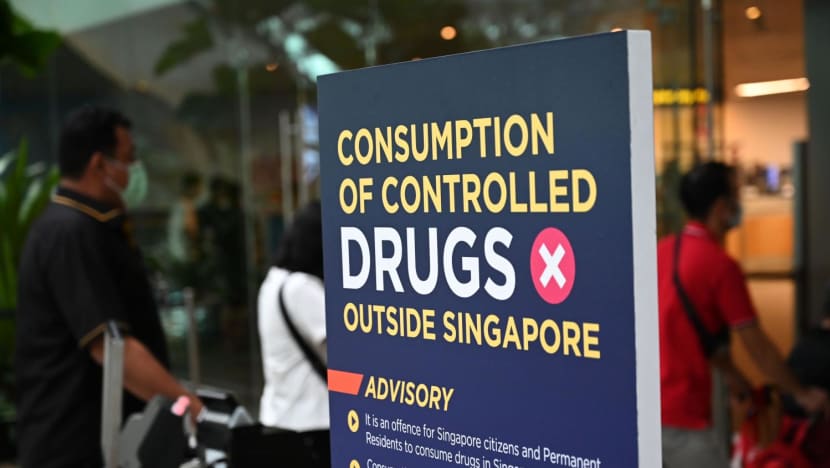
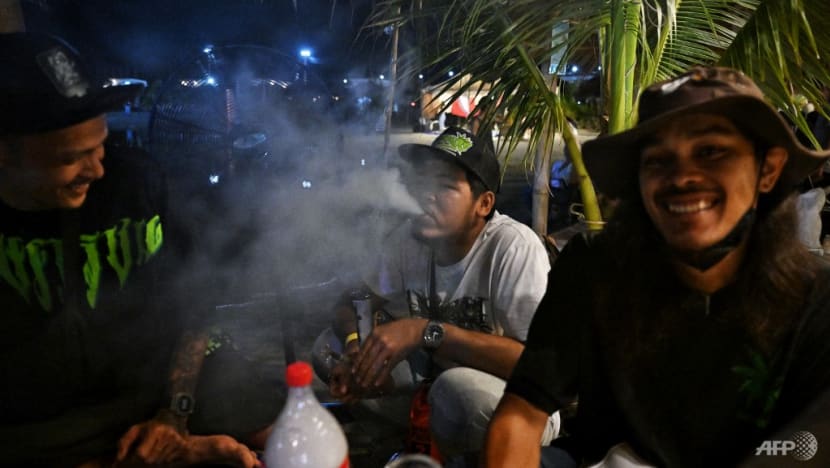
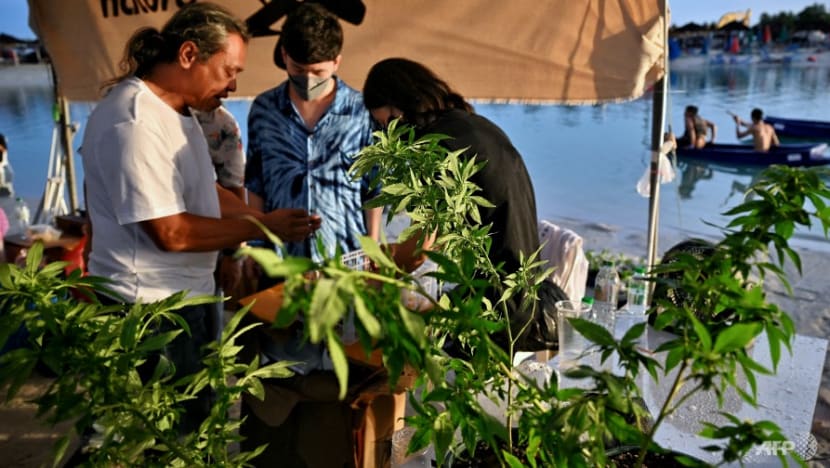


No comments
Share your thoughts! Tell us your name and class for a gift (: